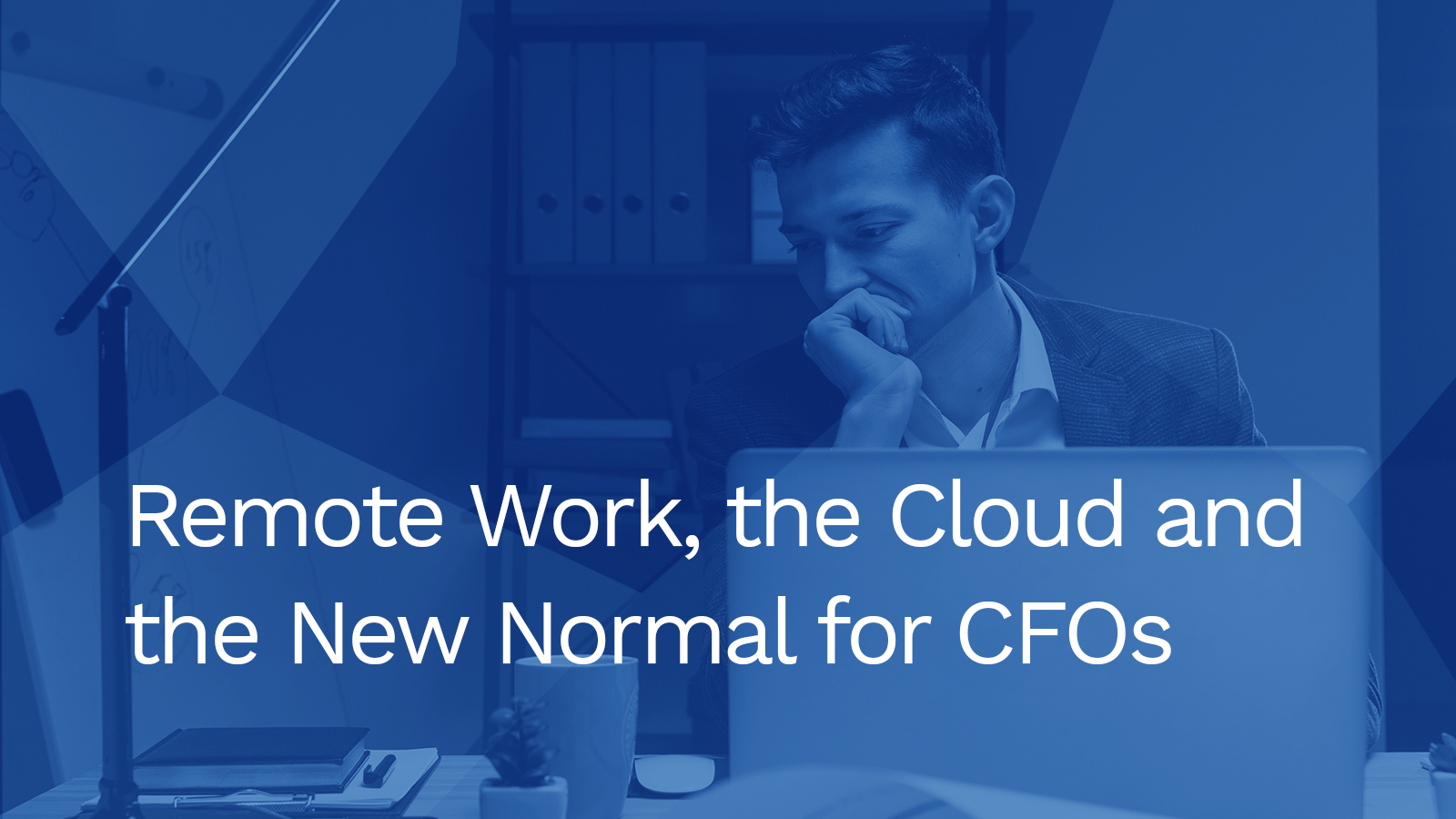
Remote Work, the Cloud and the New Normal for CFOs
It’s been more than two months since most of North America’s workforce started working from home, and generally, executives seem pleased with how things have gone. Twitter recently told its employees that they can work from home for as long as they’d like – even permanently – while other companies are also considering ways to continue remote work.
As the economy begins to reopen, executives, and especially the CFOs who control company purse strings, will need to think carefully about whether they too should allow their staff to continue working from home on a more permanent basis.
According to Gartner, many CFOs see the benefit of having more staff work remotely. A survey published in early April finds that about 25% of the 317 CFOs surveyed will move at least 20% of their previously on-site workforce to permanently remote positions once the pandemic ends. Another 74% said they would move 5% of their staff off-site.
When it comes to finance functions itself, Gartner says that 90% of CFOs reported that almost all accounting-related activities can be executed off-site and that the crisis has had minimal disruptions to the accounting close process. In a press release, Alexander Bant, vice-president of research for Gartner’s finance practice said that “CFOs, already under pressure to tightly manage costs, clearly sense an opportunity to realize the cost benefits of a remote workforce”.
However, wanting to create a more permanent remote work arrangement and actually doing it are two different things. While the technology you’re using may be suitable now, your business may not be set up to handle off-site workers long term. Getting to that point will likely require a variety of tech-related upgrades.
So, where should CFOs start? Here are three ideas.
Embrace the cloud
You can’t have a remote workforce without the cloud. Cloud computing allows companies to access programs, information, and applications from anywhere. These programs are stored on virtual servers, usually run by third-party companies, such as Google or Amazon, which means there’s no more need to log in to a company’s network with a VPN key. All of the programs you need to run a productive business are now cloud-based, from enterprise resource planning software to customer relationship management programs to various accounting platforms, so with the right technology, there’s no reason you can’t have an effective off-site workforce.
Writing on CFO.com about the future of remote work, Jon Raphael, Deloitte’s managing partner of innovation and client service delivery, says that “cloud computing offers a virtual workspace for colleagues around the world. Professionals can share ideas, track progress, and work on a single source of accurate data asynchronously at their own schedule or in real-time, together.” He continues, “Combined with effective investment in digital knowledge management capabilities, a cloud strategy provides a secure, accessible source of information, thereby setting the stage for muted disruption of work and comfort in the enablement of fact-based decision making.”
Partner with fintechs
Creating a more virtual workplace means companies will have to adopt innovative technologies, many of which have been developed by fintech companies rather than the large accounting firms or banks. While some of this tech may be more program-based – perhaps there’s better payroll software on the market that’s easier for a remote workforce to use – other technologies will be needed to help make specific functions, like information sharing with a bank or tracking currency movements across continents, more efficient.
A number of fintech companies have developed APIs, which are protocols that specify how various kinds of software should interact, including cloud-based programs and ones that aren’t in the cloud. For instance, your ERP software may not be compatible with the payroll software your bank uses, in part because the latter is not in the cloud. With an API, you not only can make those connections, but you won’t even notice anything unusual. All the work is being done in the background. FISPAN can help you figure which APIs you need to ensure your programs run smoothly from home.
Consider security
Security is another issue for CFOs, as a breach could result in lost revenues and other negative financial impacts. While it’s impossible to say with total certainty that a breach will never occur, many of the cloud-based programs that businesses use, and the virtual servers where information is stored, have become dramatically more secure over the years. According to one survey, 52% of organizations said they experience better security in the cloud than with on-premises IT.
These days, fintechs also use high-quality security and encryption software to protect their users’ data and information. For instance, our platform’s security facilitates compliant and verifiable transactions between banks and their customers. CFOs and other end users can also set permissions to decide what data is exchanged. With more people working from home, working with secure, cloud-based providers will be even more important than it is now.
It may still be a while before the pandemic ends and people have to make the choice of returning to work on-site or working from home, but CFOs should start preparing now so that they’re ready for when that time comes. If you’d like to find out more about how how to adapt to this ‘new normal’ for CFO’s and accounting teams, check out our post on 5 digital transformation trends: https://blog.fispan.com/5-digital-transformation-trends-for-cfos

